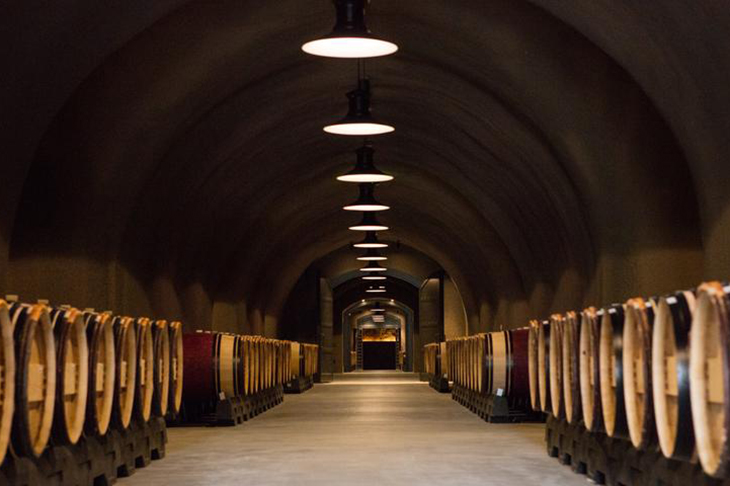Some people think that appreciating wine is all about the taste of the beverage. Others, more cynical, think that, at bottom, it is
about the efficient ingestion of that complex hydrocarbon that the body converts into sugar, and merriment, as it passes through the system. The name of that compound is ethanol, a type of alcohol produced by the fermentation of certain fruits.
If you look up ‘alcohol’ in a sociologically or anthropologically disposed reference work, you’ll find owlish observations to the effect that ‘alcohol plays an important social role in many cultures’. This is a nod to fact that wine is a both a goad to conviviality and a glue binding up the multifarious wounds to our amour propre that are the natural result of the conduct of daily life. Most of us order that first glass of Mersault at the end, not the beginning, of the day, another acknowledgement that wine serves to commemorate or solemnize our activities even as it elevates our spirits.
There are also, of course, the ritual aspects of wine, which encompasses everything from the shape and delicacy of the containers from which we quaff it to the vocabulary which summarizes our impressions of its taste, aroma, succulence and the general agreeableness of its duration on the palette. Screw-tops are, it pains me to say, probably just as effective in preserving wine from the baneful effects of oxidation, but I have a prejudice in favor of corks — and they must be made of cork, not plastic — for the simple reason that that is how things have been done for centuries. The ritual is the reason that, to adapt Pascal, ‘le raison ne connaît point’.
There is some deep significance in the fact that Jesus’s first recorded miracle was the conversion of water into wine, that the miracle took place at a wedding, and that wine and transformation stand at the center of the Catholic Mass.
There is one other, equally recondite, aspect about the production, circulation and consumption of wine that I want to mention in this brief précis: its importance as a prop or adjunct to that central fact of human aspiration, the maintenance or prosecution of snobbery.
I hesitate to use the word ‘snobbery’. If you look it up, the definitions are mostly, indeed wholly, negative. Add that to the curious fact that the words ‘snob’ and ‘wine’ are never far from each other, and you face a depressing contingency. Why is something that gives so much pleasure, that is so central to the practice of so many of our social and religious observances, also virtually inseparable from snobbery?
A full answer would probably take us back to certain events in the Garden of Eden. I do not propose to provide anything like a full answer. Instead, I’d like to suggest that snobbery is not the wholly negative attribute it is generally taken to be. Or perhaps it would be better to say that much that looks like snobbery is really more innocent, or more noble, in its aspiration.
It is often said that snobbery depends upon an unearned or unjustified sense of superiority (or its twin, an unearned or unjustified imputation of inferiority). But sometimes what may look like snobbery is instead satisfaction in the spectacle of earned or justified superiority. The fact that we often have difficulty distinguishing between them is partly because they often cohabit in close proximity, sometimes, indeed, within the same breast. Pretension is an ineradicable part of snobbery. But it is also a frequent aid to real accomplishment. And stepping back, we see that it is important to distinguish between people who are merely pretentious and those who have the courage of and live up to their pretensions.
This brings me to the Napa Valley Reserve, a private wine club overseen by the Harlan Estate, the ‘ultimate cult winery’ (according to Vanity Fair), which makes expensive Bordeaux style reds that are rarely seen in the wild. The British wine writer Jancis Robinson called its 1990 vintage ‘one of the ten best wines of the 20th century’. It is a sadness to report that I have never tasted it.
The Napa Valley Reserve is a logical outgrowth of the Harlan Estate. Started in 2000, it has a membership of about 600 couples.
The making of wine is at the center of the club’s activities. Members can participate in the creation of their own vintage, picking and sorting grapes, choosing barrels for aging, and all other aspects of creating wine. They then get an allotment of their custom wine, branded according to their instructions. The club also encompasses other interests and vintages, including vintage luxury automobiles. No prices are mentioned, but it wouldn’t do to talk about money and, besides, J.P. Morgan was right: if you have to ask, you can’t afford it.
This story has a happy ending. It turns out that, unbeknownst to me, a generous friend is a member and she sent me a bottle. I soon found an appropriate occasion to enjoy it. Yes, it was delicious: rich, complex, lingering and fruit-full without a trace of sharpness or (the opposite fault) cloying blowsiness. I have no idea what it would cost because, outside of specialty sales, it is not really for sale. So my commendation cannot be counted a recommendation.
I would be letting the side down by neglecting some special recommendation, though, so let me conclude by recommending the 1999 Lynch Bages, a noble claret from Pauillac. A few bottles turned up at an estate sale from the excellent Chambers Street Wine and Spirits in New York. Ever cautious, I opened one early to be sure it was sound: it was! Ever so slightly austere, this classic wine is beautifully balanced and seductive.
This article was originally published in The Spectator’s February 2021 US edition.


















